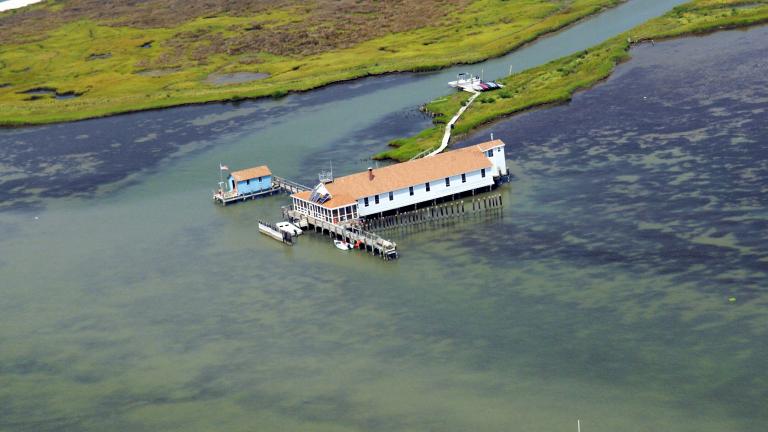
Photo courtesy of Jeremy Cox, Bay Journal
A combination of factors, including climate change and erosion, is causing historic changes in and around the Chesapeake Bay. The Bay contains hundreds of islands, some of which are starting to disappear. Now, Fox Island and its highly regarded education center run by the Chesapeake Bay Trust for four decades, is being closed. Fox Island was one of only four education centers where people could learn about the ecology of the Chesapeake Bay, the largest estuary in the US. Thousands of children and adults have experienced the ecology of the Bay on Fox Island over the years, but this opportunity is sadly coming to an end. For the full story, see the article in the Bay Journal.
This event has drawn the attention of many in the area, including Maryland Senator Cardin, who gave a powerful speech on the Senate floor (1:33-1:42). The plight of Fox island is not unique. Within eye shot is Tangier Island, inhabited since 1778 and located 100 miles from Washington DC, which has received considerable attention recently (see National Geographic article). "The Disappearing Islands of the Chesapeake", a book by William B. Cronin published in 2005, reported that islands constituted a total of 357 acres in 1895, but was down to 67 acres by the time of publication. Since then, the foundation reported only 34 acres remain.





